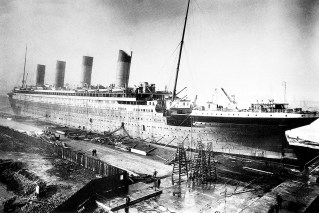UK satellite launch fails after ‘anomaly’

An attempt to make British space history by launching a rocket into orbit from UK soil has ended in failure. Photo: AAP
The first attempt to launch a satellite from western Europe appeared to have failed when Virgin Orbit reported an “anomaly” that had prevented its rocket reaching orbit.
The mission had left from the coastal town of Newquay in southwest England late on Monday, with Virgin’s LauncherOne rocket carried under the wing of a modified Boeing 747 and later released over the Atlantic Ocean.
“We appear to have an anomaly that has prevented us from reaching orbit,” the company said early on Tuesday. “We are evaluating the information.”
The apparent failure deals a further blow to European space ambitions after an Italian-built Vega-C rocket mission failed after lift-off from French Guiana in late December.
The rockets have since been grounded.
Virgin Orbit, part-owned by British billionaire Richard Branson, had planned to deploy nine small satellites into lower earth orbit in its first mission outside its United States base.
Launch officials were not immediately available for further comment. The company had earlier said on Twitter that LauncherOne had reached earth orbit, a tweet it later deleted.
A graphic display on an official video feed showed the mission at second-engine cut-off, three steps short of payload deployment about two hours after take-off.
The carrier aircraft, called Cosmic Girl returned to Newquay spaceport shortly after the rocket suffered the anomaly.
The mission was to mark the first international launch for Virgin Orbit.
The US-listed company has already completed four similar launches from California.
Satellites produced in the UK have had to be sent to spaceports in other countries to make their journey into space.
Some of the satellites are meant for UK defence monitoring, while others are for businesses such as those working in navigational technology.
The mission was a collaboration between the UK Space Agency, the Royal Air Force, Virgin Orbit and Cornwall Council.
The launch was planned for late last year, but was postponed because of technical and regulatory issues.
– AAP








